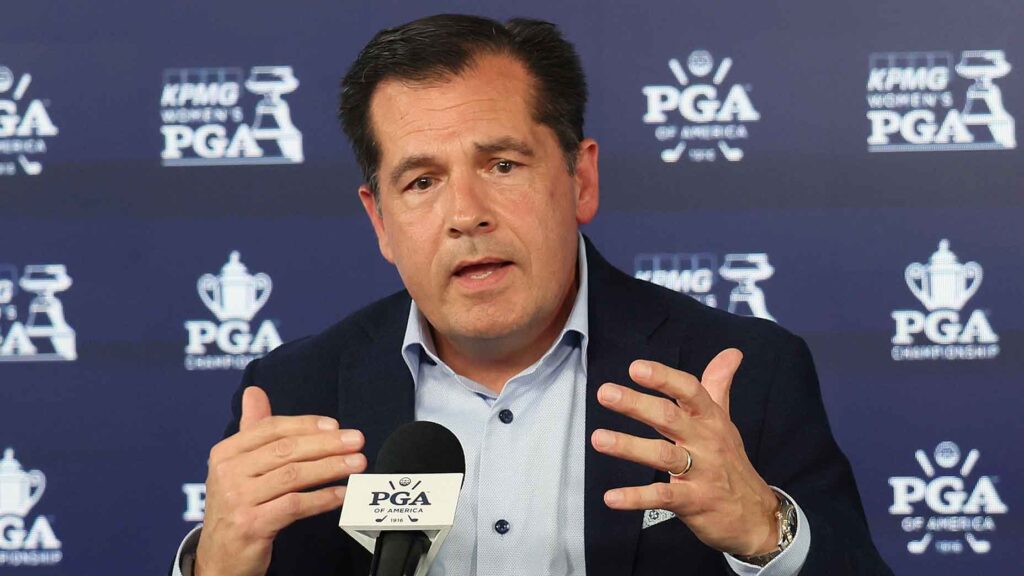Apology and Accountability: PGA’s Commitment Towards a Better Ryder Cup Experience
In a recent turn of events within the golf community, Derek Sprague, the head of the PGA of America, publicly extended his apologies to golfing superstar Rory McIlroy and his wife. This gesture comes in the wake of a controversial Ryder Cup tournament that left many questions surrounding the organization’s management and response to player experiences during major events.
Sprague’s apology highlights an increasing awareness of the emotional and psychological pressures athletes endure, especially during high-stakes events like the Ryder Cup. His acknowledgment of the McIlroys’ concerns is a step towards fostering a more supportive environment for players, emphasizing the need for the PGA to prioritize athlete wellbeing and personal interactions in future events.
The Ryder Cup, renowned for its intense competition and national pride, often creates a backdrop for high emotions. However, this year’s edition seemed to amplify dissatisfaction among athletes, particularly Rory McIlroy, who has been an outspoken advocate for better treatment and transparency within golf organizations. Sprague’s recognition of this issue signals a possible shift in the PGA’s approach to player engagement and management.
Moving forward, Sprague has promised to implement changes that ensure the Ryder Cup and similar events provide an equitable experience for all players. This commitment includes listening to player feedback—both during and post-event—and taking actionable steps based on those insights. Such initiatives will be crucial in rebuilding trust and credibility among top-tier players and the governing body.
Moreover, Sprague’s acknowledgment and promise to improve underscore the broader responsibility sports organizations have in maintaining relationships with their athletes. By addressing grievances directly and responsibly, the PGA can cultivate an atmosphere of respect and care. This is especially important given the rise of social media, where public sentiment can influence reputation and trust at lightning speed.
In the aftermath of Sprague’s statements, the golf community remains hopeful for a more progressive approach from the PGA in managing events. The commitment to enhancing communication between players and governing bodies has become a priority that could set a tone for future tournaments. It’s clear that the landscape of sports management is evolving, and understanding player needs is at the forefront of this change.
Furthermore, player experiences shouldn’t just be an afterthought; they should be integral to the planning process. By incorporating athlete perspectives into organizational strategies, the PGA can create a platform where players feel valued and empowered to voice their opinions.
In conclusion, the apology from Derek Sprague represents a pivotal moment for the PGA of America. By acknowledging mistakes and promising to improve, the organization has taken a significant step forward in reshaping its relationship with golfers, particularly with icons like Rory McIlroy. As the golf world watches closely, the hope is that these changes will lead to a renewed spirit of collaboration and respect in the sport. The road to improvement may be long, but the PGA’s commitment to do better is a vital first step in enhancing the overall athlete experience.


